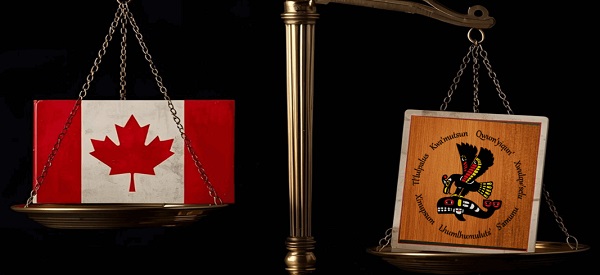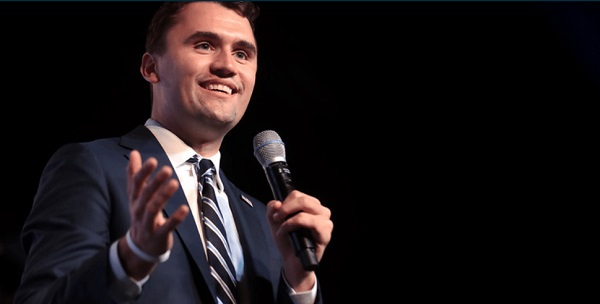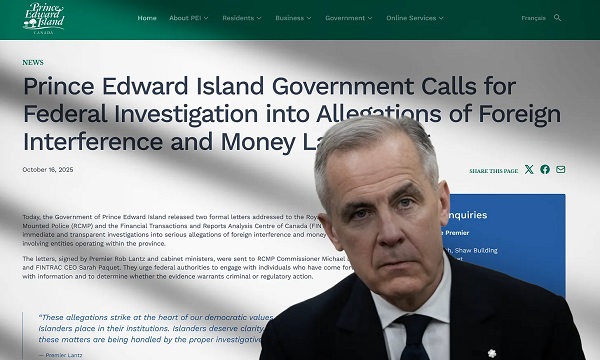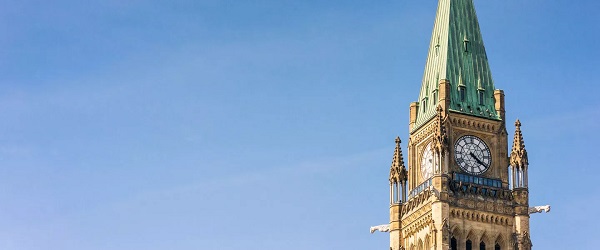Business
TikTok Battles Canada’s Crackdown, Pitching Itself as a “Misinformation” Censorship Ally

If you’re tired of censorship and surveillance, subscribe to Reclaim The Net.
TikTok challenges Canada’s decision to shut down its operations, citing its role in combating “misinformation” as a reason the government should let it stay in the country.
|
In Canada, TikTok is attempting to get the authorities to reverse the decision to shut down its business operations by going to court – but also by recommending itself as a proven and reliable ally in combating “harmful content” and “misinformation.”
Canada last month moved to shut down TikTok’s operations, without banning the app itself. All this is happening ahead of federal elections amid the government’s efforts to control social media narratives, always citing fears of “misinformation” and “foreign interference” as the reasons. TikTok, owned by China’s ByteDance, was accused of – via its parent company – representing “specific national security risks” when the decision regarding its corporate presence was made in November; no details have been made public regarding those alleged risks, however. Now the TikTok Canada director of public policy and government affairs, Steve de Eyre, is telling the local press that the newly created circumstances are making it difficult for the company to work with election regulators and “civil society” to ensure election integrity – something Eyre said was previously successfully done. In 2021, he noted, TikTok initiated collaboration with Elections Canada (the agency that organizes elections and has the power to flag social media content) which included TikTok adding links to all election-related videos that directed users toward “verified information.” And the following year, TikTok was invested in monitoring its platform for “potentially violent” content, during the Freedom Convoy protests against Covid mandates. More recently, TikTok was also on its toes for “foreign interference and hateful content” related to Brampton clashes between Sikhs and Hindus. This approach, Eyre argues, is now jeopardized because TikTok employees are not present in Canada, who would be able to inform the platform’s decisions in terms of the political and cultural “context” in Canada. And the political context is that of the Trudeau government playing the election misinformation card indirectly and directly, to put pressure on social sites. Even though the decision regarding the company’s business operations has been described by Foreign Minister Melanie Joly as “a message to China” – it’s really a message to TikTok, since the app remains available, but has been “put on notice.” |
|
|
|
You subscribe to Reclaim The Net because you value free speech and privacy. Each issue we publish is a commitment to defend these critical rights, providing insights and actionable information to protect and promote liberty in the digital age.
Despite our wide readership, less than 0.2% of our readers contribute financially. With your support, we can do more than just continue; we can amplify voices that are often suppressed and spread the word about the urgent issues of censorship and surveillance. Consider making a modest donation — just $5, or whatever amount you can afford. Your contribution will empower us to reach more people, educate them about these pressing issues, and engage them in our collective cause. Thank you for considering a contribution. Each donation not only supports our operations but also strengthens our efforts to challenge injustices and advocate for those who cannot speak out.
Thank you.
|
Business
Judges are Remaking Constitutional Law, Not Applying it – and Canadians’ Property Rights are Part of the Collateral Damage

By Peter Best
The worst thing that can happen to a property owner isn’t a flood or a leaky foundation. It’s learning that you don’t own your property – that an Aboriginal band does. This summer’s Cowichan Tribes v. Canada decision presented property owners in Richmond B.C. with exactly that horrible reality, awarding Aboriginal
title to numerous properties, private and governmental, situated within a large portion of Richmond’s Fraser River riverfront area, to Vancouver Island’s
Cowichan Tribes. For more than 150 years, these properties had been owned privately or by the government. The Cowichan Tribes had never permanently lived
there.
But B.C. Supreme Court Justice Barbara Young ruled that because the lands had never been formally surrendered by the Cowichans to the Crown by treaty, (there
were no land-surrender treaties for most of B.C.), the first Crown grants to the first settlers were in effect null and void and thus all subsequent transfers down
the chain of title to the present owners were defective and invalid.
The court ordered negotiations to “reconcile” Cowichan Aboriginal title with the interests of the current owners and governments. The estimated value of the
property and government infrastructure at stake is $100 billion.
This ruling, together with previous Supreme Court of Canada rulings in favour of the concept of Aboriginal title, vapourizes more than 150 years of legitimate
ownership and more broadly, threatens every land title in most of the rest of B.C. and in any other area in Canada not subject to a clear Aboriginal land surrender
treaty.
Behind this decision lies a revolution – one being waged not in the streets but in the courts.
In recent years Canadian judges, inspired and led by the Supreme Court of Canada, have become increasingly activist in favour of Aboriginal rights, in effect
unilaterally amending our constitutional order, without public or legislative input, to invent the “consult and accommodate” obligation, decree Aboriginal title and grant Canadian Aboriginal rights to American Indians. No consideration of the separation of powers doctrine or the national interest has ever been evidenced by
the Court in this regard.
Following the Supreme Court’s lead, Canadian judges have increasingly embraced the rhetoric of Aboriginal activism over restrained, neutral language, thus
sacrificing their need to appear to be impartial at all times.
In the Cowichan case the judge refused to use the constitutional and statutory term “Indian,” calling it harmful, thereby substituting her discretion for that of our
legislatures. She thanked Aboriginal witnesses with the word “Huychq’u”, which she omitted to translate for the benefit of others reading her decision. She didn’t
thank any Crown witnesses.
What seems like courtesy in in fact part of a larger pattern: judges in Aboriginal rights cases appearing to adopt the idiom, symbolism and worldview of the
Aboriginal litigant. From eagle staffs in the courtroom, to required participation in sweat lodge ceremonies, as in the Supreme Court-approved Restoule decision,
Canada’s justice system has drifted from impartial adjudication toward the appearance of ritualized, Aboriginal-cause solidarity.
The pivot began with the Supreme Court’s 1997 Delgamuukw v. British Columbia decision, which first accepted Aboriginal “oral tradition” hearsay evidence. Chief
Justice Lamer candidly asked in effect, “How can Aboriginals otherwise prove their case?” And with that question centuries of evidentiary safeguards intended
to ensure reliability vanished.
In Cowichan Justice Young acknowledged that oral tradition hearsay can be “subjective” and is often “not focused on establishing objective truth”, yet she
based much of her ruling on precisely such “evidence”.
The result: inherently unreliable hearsay elevated to gospel, speculation hardened into Aboriginal title, catastrophe caused to Richmond private and government property owners, the entire land titles systems of Canadian non-treaty areas undermined, and Crown sovereignty, the fount and source of all real property rights generally, further undermined.
Peter Best is a retired lawyer living in Sudbury, Ontario.
The original, full-length version of this article was recently published in C2C Journal.
Business
Trump Blocks UN’s Back Door Carbon Tax


From the Daily Caller News Foundation
Has the time come for America to seriously reassess its participation in and support for the United Nations (U.N.)?
It’s a question that some prominent people are asking this week after the increasingly woke and essentially useless globalist body attempted to sneak a global carbon tax in through the back door while no one was looking.
Except someone was looking, as it turns out. Republican Utah Sen. Mike Lee, who chairs the powerful Senate Energy and Natural Resources Committee and is part of the majority on both the Senate Judiciary and Senate Foreign Relations Committees, said in an X post Thursday evening that this latest bit of anti-American action “warrants our withdrawal from the UN.”
Dear Readers:
As a nonprofit, we are dependent on the generosity of our readers.
Please consider making a small donation of any amount here.
Thank you!
Secretary of State Marco Rubio said in his own X post on the matter on Wednesday that the Trump administration “will not allow the UN to tax American citizens and companies. Under the leadership of POTUS (President Donald Trump), the U.S. will be a hard NO. We call on other nations to stand alongside the United States in defense of our citizens and sovereignty.”
On Friday afternoon, Mr. Rubio took to X again to announce the news that efforts by himself and others in the Trump administration succeeded in killing an effort to move the tax forward during a meeting in London. However, the proposal is not fully dead – a final vote on it was simply delayed for a year.
The issue at hand stems from an attempt by the International Maritime Organization (IMO) – an agency of the U.N. – to impose net-zero rules on fuels used for seaborne shipping operations. The Trump administration estimates the imposition of the new requirements will increase the cost of shipping goods by about 10%, thus creating yet another round of inflation hitting the poorest citizens the hardest thanks to the globalist obsession with the amount of plant food – carbon dioxide – in the atmosphere.
Known as the IMO Net-Zero Framework, the proposal claims it would effectively “zero out” emissions from the shipping industry by 2050.
The potential implications if the U.N. ultimately succeeds in implementing its own global carbon tax are obvious. If this unelected, unaccountable globalist body can levy a carbon tax on Americans, a concept that America’s own elected officials have steadfastly rejected across the terms of the last five U.S. presidents, what would then prevent it from imposing other kinds of taxes on the world to support its ideological goals?
President Trump’s opposition to exactly this kind of international intrusion into America’s domestic policy choices is the reason why he has twice won the presidency, each time de-committing the U.S. from the Paris Climate Accords.
It has become increasingly obvious in recent years that the central goal of the global climate alarm movement is to dramatically raise the cost of all kinds of energy in order to force the masses to live smaller, more restricted lives and make their behavior easier for authoritarian governments to control. This camel’s nose under the tent move by the U.N. to sneak a global carbon tax into reality is just the latest in a long parade of examples that serve as proof points for that thesis.
At some point, U.S. officials must seriously reassess the value proposition in continuing to spend billions of dollars each year supporting and hosting a globalist organization whose every action seems designed to inflict damage on our country and its people. Now would be a good time to do that, in fact.
David Blackmon is an energy writer and consultant based in Texas. He spent 40 years in the oil and gas business, where he specialized in public policy and communications.
-

 Red Deer2 days ago
Red Deer2 days agoThe City of Red Deer’s Financial Troubles: Here Are The Candidates I Am Voting For And Why.
-

 Business1 day ago
Business1 day agoUN, Gates Foundation push for digital ID across 50 nations by 2028
-

 COVID-191 day ago
COVID-191 day agoThe Trials of Liberty: What the Truckers Taught Canada About Power and Protest
-

 C2C Journal1 day ago
C2C Journal1 day agoCharlie Kirk and the Fragility of Civic Peace
-

 espionage2 days ago
espionage2 days agoPEI to Ottawa: Investigate CCP Footprints—Now
-

 Business2 days ago
Business2 days agoFederal Budget 2025: A responsible media would ensure Canadians know about the dismal state of federal finance
-

 International1 day ago
International1 day agoPoland’s president signs new zero income tax law for parents with two children
-

 Business2 days ago
Business2 days agoCanada has an energy edge, why won’t Ottawa use it?




